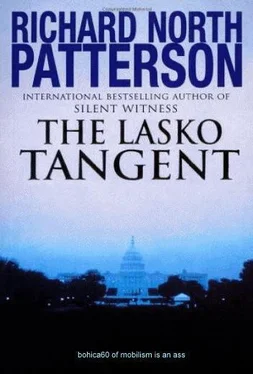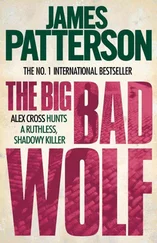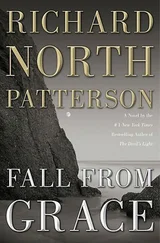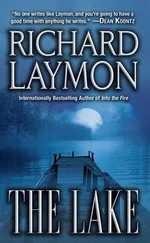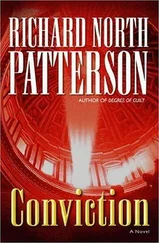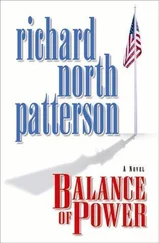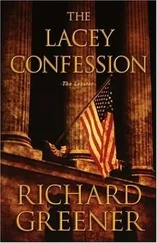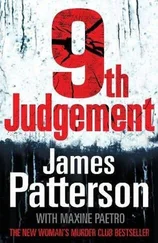Richard Patterson - The Lasko Tangent
Здесь есть возможность читать онлайн «Richard Patterson - The Lasko Tangent» весь текст электронной книги совершенно бесплатно (целиком полную версию без сокращений). В некоторых случаях можно слушать аудио, скачать через торрент в формате fb2 и присутствует краткое содержание. Жанр: Криминальный детектив, на английском языке. Описание произведения, (предисловие) а так же отзывы посетителей доступны на портале библиотеки ЛибКат.
- Название:The Lasko Tangent
- Автор:
- Жанр:
- Год:неизвестен
- ISBN:нет данных
- Рейтинг книги:3 / 5. Голосов: 1
-
Избранное:Добавить в избранное
- Отзывы:
-
Ваша оценка:
- 60
- 1
- 2
- 3
- 4
- 5
The Lasko Tangent: краткое содержание, описание и аннотация
Предлагаем к чтению аннотацию, описание, краткое содержание или предисловие (зависит от того, что написал сам автор книги «The Lasko Tangent»). Если вы не нашли необходимую информацию о книге — напишите в комментариях, мы постараемся отыскать её.
The Lasko Tangent — читать онлайн бесплатно полную книгу (весь текст) целиком
Ниже представлен текст книги, разбитый по страницам. Система сохранения места последней прочитанной страницы, позволяет с удобством читать онлайн бесплатно книгу «The Lasko Tangent», без необходимости каждый раз заново искать на чём Вы остановились. Поставьте закладку, и сможете в любой момент перейти на страницу, на которой закончили чтение.
Интервал:
Закладка:
“I imagine everyone has trouble.” What I was having trouble with was integrating her personality. The self-control had eased into ironic candor. The cutting edge of perception was the only constant.
We stopped at a carry-out on Connecticut and grabbed an eight-pack of beer, which I said was to impress her. Then we drove to the restaurant. The Bangkok Room was stark and brightly lit, with a few booths and a couple of formica tables in the corners. The food ranged from good to great. And it was spicy and cheap. I explained that to Mary while I ceremoniously yanked the flip-tops off two beer cans, adding that the Bangkok Room didn’t have a liquor license. She took the can and tilted it to her lips.
“You’re laughing,” she said.
“If you must know, I’m laughing because very few girls could look so stylish drinking out of a beer can. You know, you never told me what you were doing before you worked for Woods.” Which was true; Robinson had told me. “Were you living in wedded bliss with Frank, ironing his shirts?”
She gave me a mildly hostile look. “You know, you find Frank a little funnier than I do. I was on the staff of the Senate Commerce Committee, mostly drafting legislation.” And collecting scalps, I remembered. “That was my first job. I came straight from there.”
“Did you go to school in town?” I didn’t really like this part. I told myself that I was a secret agent for the Civil Service Commission, checking the accuracy of their records.
“No. Chicago.”
“How did you get here?”
She hunched her shoulders. “I was interested in politics. Why did you come here?”
I considered what level of truth to give her and selected medium. “I thought I could do some good. Fight white collar crime and all that.”
“Were you ever interested in politics?”
“I was. I stopped.”
“When?” It was her eyes which told me that the question was important; they were back on the job, probing.
“About 1968. Do you still think it’s important?”
“Do I think what’s important?”
“Politics.”
“Yes, very.”
“Why?”
Her answer was impatient. “Because government matters, more and more. And who controls the government determines how people are going to live their lives. You need the right people directing it. And a lot of other people pushing to make sure they get there and stay there.”
Her eyes snapped; the careful voice was low and intense. I decided to skip finding out what the “right people” were going to determine about my life. The talk needed leavening. “I apologize for joking about Frank. He should have been named Lance or Errol, something like that. Anyhow, I should just feel lucky I don’t have an ex-wife.”
The topic of politics had flushed out the stern Aztec look. It lingered there, then abruptly vanished. She replaced it with a bright, distracted smile, which looked as if it had been thrown on. The voice was better, light and ironic. “You’re right. You’ve probably been spoiled by the women you’ve known.”
Dinner arrived. “Watch it, Mary. It’s hot.” I handed her another beer.
“Have you?” she insisted.
“I don’t know. ‘Spoiled’ is a relative term. Anyhow, it strikes me as a little archaic, like ‘helpmate’ or ‘the little woman’-words like that.”
She smiled. “Or like ‘using your education in the home’?” She plunged into dinner with unconcealed zest. Then she rushed the beer to her lips and took a hasty sip. “You’re right. Wow. But it’s good.” She closed her eyes and moved her head from side to side. “You know, you’re great at not answering any questions,” she said when she had recovered.
“I guess you’re right. It’s my profession taking over. Ask a lot of questions and don’t give away any information.”
She shook her head. “On you it goes deeper than that,” she started, then dropped it abruptly. “How did you find this place?”
So I told her how. About my crazy friend from college who used to get stoned and come here to plot the liberation of Thailand. And a few other stories, while we finished dinner and killed the eight-pack of beer. Which got her to laughing, a good strong laugh that lit her eyes. So she broke down and told me some funny things about Frank. We solemnly agreed that they were better off divorced, and laughed about it all the way to the car. We drove back to Georgetown in a quiet mellow mood. Mary slouched in the other seat, her long legs stretched out. We chatted easily all the way.
I parked the car and walked her to her door. She opened it, then turned around and looked at me. “I’d ask you in, but it’s very late.”
I hung there in adolescent confusion. “Some other time.” I tried to think of a graceful exit line.
“Call me from Boston about that subpoena to Lasko.”
I nodded, feeling as if I had lost the mood. Then with a quick movement she slid her hand behind my neck and pulled my face down to hers. Her mouth felt strong, almost angry; her fingers played with the hair which touched my collar. Then they slid away and she backed up against the door, wearing the amused half-smile. “Good night, Christopher Kenyon,” she said, and softly shut the door behind her.
I drove home and packed for Boston.
Eight
I was in Boston the day he was murdered.
I landed at Logan Airport about a quarter to twelve, which left me almost three hours. I got off the plane and jammed some change in the phone, hoping to beat the noon hour. Mary was in her office. Yes, she said, Woods had okayed my Lasko subpoena. Could she reach me later at our Boston office if necessary. I didn’t know, I hedged. OK, she would see me when I got back. Not much inflection; no mention of the night before. All very professional. I told myself I had what I wanted, and hung up.
I called our Boston office. They would pick up the subpoena and serve it on the company this afternoon. I went toward the baggage claim, got my bag, and hailed a taxi.
Boston was unseasonably cool, grey and gloomy. It had been grey when I’d left Boston, after losing something I had wanted to keep. Since then, I’d liked myself a little less. I felt the same way about Boston.
It was only 12:15. So I checked into the Ritz-Carlton, dropped off the subpoena at the desk, and went to the men’s grill at Locke-Ober for a solitary lunch. I ate it over some solitary thoughts. They lasted me until 2:15. Then I caught another taxi, manned by a bearded Harvard dropout who earned extra cash appearing on daytime quiz shows. No, I really couldn’t blame him, I agreed. He dropped me on Arlington Avenue across from the hotel and in front of the Common.
The rolling green of the Common was surrounded by the same black iron fence. I walked through the iron gates and into the Public Garden. The asphalt path snaked aimlessly under oak trees and through grass and flower beds. I looked ahead for Gubner. But there was no one between me and the swanboats which sat on the distant pond. The swans looked as still as a painting with no heart in it. The Garden seemed lifeless, a stillborn fantasy. I turned away.
Gubner sat on a wood bench, about thirty yards to my left. He was alone. It appeared that he had been watching me, but hadn’t moved. I walked toward him. Gubner sat frozen, looking as unreal as the swans. But he rose when I reached the bench. The handshake was firm, but the smile was less jaunty than usual. He had the pale, sandbagged look of someone who had just been punched in the kidneys.
“Hello, Chris.”
“Hello, Marty.” I looked past him. “Where’s your friend?”
“Over at the Ritz.” He stood hunched against some unseen threat, his hands jammed in his pocket. “I’d like to talk with you first.” The voice was off, a tinny, shallow rasp. Someone else’s troubles were leeching Gubner like a symbiotic plant.
Читать дальшеИнтервал:
Закладка:
Похожие книги на «The Lasko Tangent»
Представляем Вашему вниманию похожие книги на «The Lasko Tangent» списком для выбора. Мы отобрали схожую по названию и смыслу литературу в надежде предоставить читателям больше вариантов отыскать новые, интересные, ещё непрочитанные произведения.
Обсуждение, отзывы о книге «The Lasko Tangent» и просто собственные мнения читателей. Оставьте ваши комментарии, напишите, что Вы думаете о произведении, его смысле или главных героях. Укажите что конкретно понравилось, а что нет, и почему Вы так считаете.
